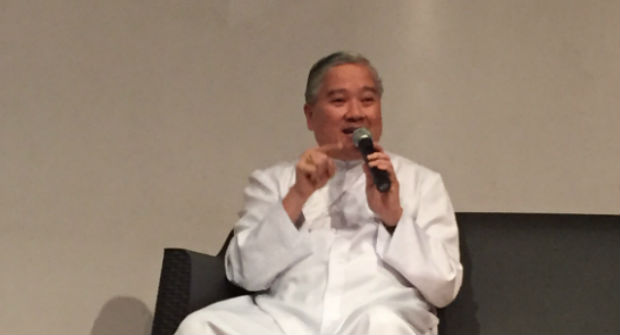MANILA, Philippies–The head of the Catholic Bishops Conference of the Philippines (CBCP) has stressed the need for an efficient and credible automated election system in the face of allegations of irregularities against the Commission on Elections (Comelec) and the precinct count optical scan (PCOS), the ballot-counting machines supplied by Smartmatic.
Lingayen-Dagupan Archbishop Socrates Villegas, in a statement posted on the CBCP website, noted that some bishops had expressed serious concerns over Comelec deals involving the automation and digitization of the May 2016 elections.
“Bishops individually and collectively have been apprised of the vulnerability of the system. In fact, there have been credible reports of failures of the system, putting serious doubts on the electoral process,” Villegas said.
Accurate elections
On Jan. 21, 25 bishops and diocesan administrators wrote the Comelec, asking the poll agency to put on hold a P300-million negotiated contract supposedly awarded to Smartmatic for the diagnostics of some 82,000 PCOS machines owned by the agency and used in the 2010 and 2013 polls.
“Accurate election results are not only a political concern, they are morally significant as they have to do with the expression of the people’s will and the exercise of fundamental political rights,” Villegas said.
Villegas released his statement as the poll body announced the retirement Monday of Comelec Chair Sixto Brillantes Jr. and two other commissioners after completing their respective terms of office.
Brillantes, who was appointed by President Aquino in January 2011 to serve the unfinished term of his then Chair Jose Melo, will give a speech to Comelec employees during the flag ceremony Monday morning in Intramuros, Manila.
A simple retirement ceremony has been scheduled later in the day at Manila Hotel, where Brillantes, and Commissioners Yusoph Elias and Lucenito Tagle will be joined by the other commissioners for a final meeting.
“The agenda of our final official en banc meeting will be our retirement,” said Brillantes in an interview with reporters.
During the ceremony, the Comelec is expected to turn over to the three retiring officials their robes and name plates, which they used during public hearings and during elections when they sat as the National Board of Canvassers.
The Comelec earlier said Brillantes’ retirement was unlikely to affect preparations for next year’s national elections.
Archbishop Villegas expressed the hope that Filipinos would free the automated election system from “serious doubts” through “openness on the part of the Comelec and both the civic and moral sense of vigilant citizens.”
Villegas particularly appealed to Catholic lay leaders with expertise in the information technology (IT) to volunteer as watchdogs so the system provider chosen by the Comelec would be able to set up an efficient system that would promote transparency and accuracy.
“Our Catholic universities and colleges with IT departments should offer their services, their evaluations and put forward appropriate corrections of shortcomings,” he said.
“The duty to protect our democratic system is the duty of everyone. Let’s listen to one another. Let us work together for the good of the nation. Credible elections are the stronghold of democracy,” Villegas said.
Bet on De Lima
While several names have cropped to succeed Brillantes, the 75-year-old veteran election lawyer said he was still betting on his close friend, Justice Secretary Leila de Lima.
Aside from De Lima, among those floated as potential candidates included Executive Secretary Paquito Ochoa Jr., Metro Manila Development Authority Chair Francis Tolentino and acting Solicitor General Florin Hilbay.
“If it were up to me, I would choose [De Lima]. She fits the job and I know how she works,” said Brillantes, who spent two decades as a lawyer defending controversial and powerful politicians, including presidential candidates Eduardo “Danding” Cojuangco Jr. and the late Fernando Poe Jr.”
He was also the lead counsel of deposed president now Manila Mayor, Joseph Estrada during the 1998 presidential elections.
Brillantes said he felt relief after his turn as the chair of one of the more controversial government agencies.
“I am happy that it’s over because I didn’t want to be in the government in the first place, but I just had to do the job,” he said.
Among the achievements of the Comelec during his term were the second automated elections in 2013, the crackdown on bogus organizations and massive cleanup of the party-list system, and the more stringent implementation of campaign finance and anti-vote buying laws, Brillantes said.
He said he hoped the Comelec would continue the initiatives to clean up its image beyond his retirement.
“That’s why I am hoping that my replacement is someone whom I know so that I can tell him or her what still needs to be done,” he said.
